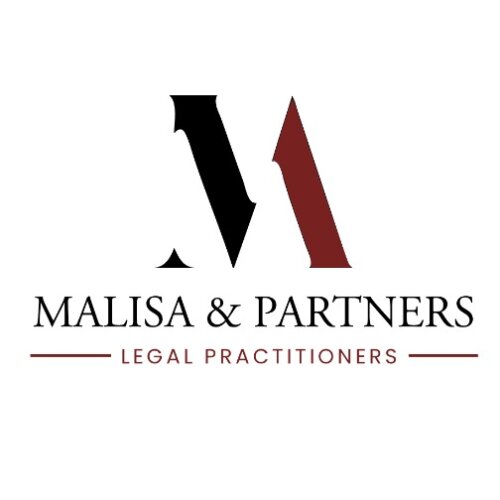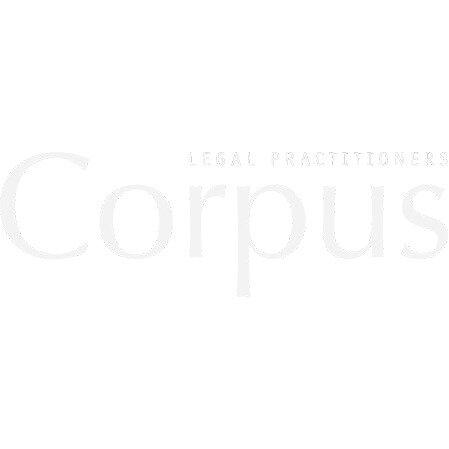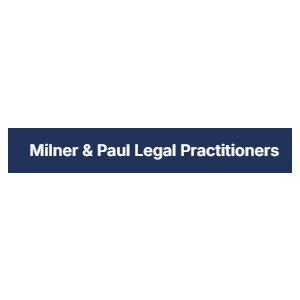Best Conveyancing Lawyers in Lusaka
Share your needs with us, get contacted by law firms.
Free. Takes 2 min.
Free Guide to Hiring a Real Estate Lawyer
List of the best lawyers in Lusaka, Zambia
About Conveyancing Law in Lusaka, Zambia
Conveyancing is the legal process of transferring property ownership from one person to another. In Lusaka, Zambia, this process involves the preparation, verification, and registration of legal documents that change the title of a property. The process ensures that the transaction is transparent, complies with local regulations, and that the interests of the parties involved are legally protected. Conveyancing typically applies to all kinds of immovable property, including residential homes, commercial properties, and land parcels. The role of a conveyancing lawyer is crucial in navigating legal requirements specific to Lusaka and Zambia as a whole.
Why You May Need a Lawyer
Conveyancing can be complex, with detailed procedures and documentation required by law. Here are some common situations where legal assistance is needed:
- Buying or selling a house, apartment, or land in Lusaka
- Transferring property ownership after inheritance or divorce
- Correcting mistakes on property titles or deeds
- Undertaking due diligence to avoid fraudulent transactions
- Resolving disputes relating to boundaries, co-ownership, or encumbrances
- Securing a mortgage or other financing
- Registering leases for long-term occupation or development
Having a qualified conveyancer or property lawyer reduces the risk of costly mistakes, helps avoid future disputes, and ensures compliance with Zambian property law.
Local Laws Overview
In Lusaka, conveyancing is governed by several pieces of legislation, including the Lands Act, Land and Deeds Registry Act, and the Property Transfer Tax Act. Key aspects to be aware of include:
- All property transfers must be registered with the Ministry of Lands and Natural Resources
- Property buyers are required to pay Property Transfer Tax, usually at a rate of 5 percent of the property's value
- Due diligence is essential to confirm the property’s title, boundaries, and whether there are any legal encumbrances such as mortgages or caveats
- Foreigners may face restrictions when buying certain categories of property or land
- Specific procedures exist for corporate buyers or sellers, and forms must be submitted in accordance with Zambian company law if a company is involved
- Transfers from estates of deceased persons require probate or letters of administration
- All documents must be properly stamped, witnessed, and lodged with the relevant government offices for registration
Frequently Asked Questions
What is conveyancing, and why is it important?
Conveyancing is the legal process that ensures property ownership is transferred from one party to another securely and under the law. It protects both buyers and sellers by formally changing the legal title, preventing disputes or fraud.
How long does the conveyancing process take in Lusaka?
The process can range from a few weeks to several months depending on the complexity of the transaction, the efficiency of the parties involved, and the promptness of government offices. On average, it takes between 30 and 90 days.
Can I do conveyancing myself without a lawyer?
It is legally possible, but not advisable. The process involves legal documentation, verification, and government procedures that are best handled by a qualified lawyer to avoid errors and future complications.
What taxes or fees are involved in property transfers?
The main tax is the Property Transfer Tax, which is 5 percent of the value of the property. There are also registration fees, stamp duties, and legal fees as agreed with your lawyer.
How can I check if a property has a valid title?
Your lawyer can help conduct a title search at the Ministry of Lands and Natural Resources to confirm ownership and check for any encumbrances or restrictions on the property.
What happens if there are multiple owners on the title?
All registered owners must consent to the transfer, and the lawyer will guide on the correct documentation needed. If an owner is deceased, probate or letters of administration must be presented.
Are there any restrictions for foreigners buying property in Lusaka?
Foreigners can buy property in Zambia but may be restricted from acquiring land in certain categories, particularly agricultural or customary land, unless exceptions are granted.
What is the role of the Ministry of Lands and Natural Resources?
The Ministry is responsible for registering property transfers, maintaining records of land ownership, and issuing Certificates of Title in Lusaka and throughout Zambia.
What should I do if a dispute arises after the conveyancing process?
Consult your lawyer immediately. Most disputes can be resolved through negotiation or mediation, but some may require formal legal proceedings.
Do I need to be physically present in Lusaka for the process?
While being present for document signing is helpful, you can appoint a lawyer or representative with a power of attorney to handle most aspects of the conveyancing process on your behalf.
Additional Resources
For more information or assistance on conveyancing matters in Lusaka, you may contact or approach these organizations:
- Ministry of Lands and Natural Resources - Property registration and title search services
- Lusaka City Council - Information on zoning, rates, and compliance
- The Law Association of Zambia - Directory of qualified conveyancing lawyers
- The Zambia Institute of Estate Agents - For reputable real estate agents
- Ministry of Justice - General legal guidance and public information
Next Steps
If you need legal help with conveyancing in Lusaka, start by gathering your property documentation, including your current title deeds and any sale agreements. Make a list of any questions or concerns you have about the transaction. Contact a qualified conveyancing lawyer who can guide you through the process, handle due diligence, and manage all legal requirements. Consult the Law Association of Zambia to find trusted legal professionals. For transactions involving complex circumstances such as inheritance or company purchases, make sure to provide full details so your lawyer can advise on the most appropriate steps. Remember, thorough legal assistance in conveyancing helps ensure a secure and smooth property transaction.
Lawzana helps you find the best lawyers and law firms in Lusaka through a curated and pre-screened list of qualified legal professionals. Our platform offers rankings and detailed profiles of attorneys and law firms, allowing you to compare based on practice areas, including Conveyancing, experience, and client feedback.
Each profile includes a description of the firm's areas of practice, client reviews, team members and partners, year of establishment, spoken languages, office locations, contact information, social media presence, and any published articles or resources. Most firms on our platform speak English and are experienced in both local and international legal matters.
Get a quote from top-rated law firms in Lusaka, Zambia — quickly, securely, and without unnecessary hassle.
Disclaimer:
The information provided on this page is for general informational purposes only and does not constitute legal advice. While we strive to ensure the accuracy and relevance of the content, legal information may change over time, and interpretations of the law can vary. You should always consult with a qualified legal professional for advice specific to your situation.
We disclaim all liability for actions taken or not taken based on the content of this page. If you believe any information is incorrect or outdated, please contact us, and we will review and update it where appropriate.
















